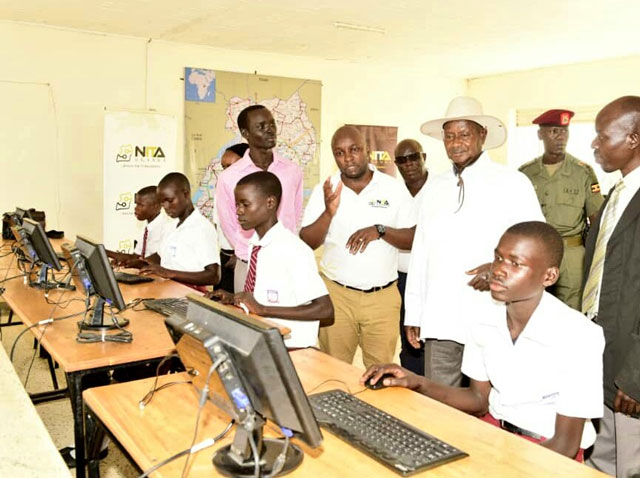
COMMENT | HENRY NJOROGE | President Yoweri Museveni recently recently commissioned the Regional ICT Infrastructure and E-Government Services in Gulu City and called for the adoption and use of ICT in public service delivery in transforming Uganda into a knowledge-based economy.
The Uganda Vision 2040 identifies ICT among the key drivers as well as, an opportunity to spur Uganda’s transformation into a modern and prosperous country through the enhancement of the usage of enabling technologies like connectivity, innovation and affordable end-user devices.
What does this transformation look like in the daily lives of Ugandans? It happens when a teacher in Kebisoni Primary School can share a digestion class with another teacher in Greenhill Academy Buwate for the benefit of their learners. It’s when a farmer in Amolator District can see, on his phone, progress of his payment by Ministry of Finance, without needing to speak to middlemen. It can also manifest when a traveler can share pictures of a failed car part to a mechanic in the shop eliminating the risk of buying the wrong part. The applications are endless.
The 4th industrial revolution also continues to showcase the various opportunities that the digital shift and smartphones and other terminal devices have played and continue to play towards facilitating socio-economic growth in Uganda and across the world.
Today, a lot of time is spent on the phone for either work-related or leisure activities given the numerous applications available for download ranging from wellness, health, education, business, to banking and other applications that one might require. That goes for work related apps the e-government services shall require.
Now, unlike a computer or tablet, a Smartphone is portable. You can carry it in your hand or pocket which allows the user to access both personal and work-related activities on the move.
Businesses today are slowly moving away from traditional marketing due to the increasing number of online community and embracing new go-to-market approaches like influencer marketing and use of smartphones to reach their diverse clientele across the country and borders. We have also seen government urgent communications delivered using Smartphones.
In Uganda, Smartphone penetration stands at 30% according to the latest UCC market report – 70% of Ugandans with a phone use basic or feature phone. The report further highlights that first quarter of 2021, mobile subscriptions stood at almost seven SIM cards for every ten Ugandans (69%).
Smartphones have numerous benefits attached to them, and the durable ones come at a high cost which has limited its penetration. The entry-level smartphone costs, though declining, are still high and this is where the conversation needs to shift to. The need for access to digital services and the opportunity to grow Smartphone penetration has required service providers to devise approaches to extend such services to the market. They can’t do it alone. The current tax regime of 2% clearing tax, 10% import duty and 18% VAT on entry-level Smartphones is restrictive. There is need for affirmative action
Airtel Uganda, approached this challenge in 3 ways
- First, Airtel launched this year in January the most affordable 4G smartphone device bundled with free internet for a year – this is to address Ugandans who need an affordable option.
- Secondly Airtel has partnered with d.light Uganda Limited, recently to provide smartphone financing allowing Ugandans to access the device immediately on paying a deposit and paying as they use the device either daily, weekly, or monthly. This offer comes with free internet for 3 months.
- For Ugandans who buy other new smartphone, Airtel Uganda provides free 1GB internet bundle and 100% bonus for 3 months.
Additionally, increasing access to the internet using Smartphones will progressively reduce the average cost of data bundles. This will increase the value the Ugandans get out of the opportunities offered by the internet.
These actions enable the young population to take advantage of the immense opportunities internet and hence they can contribute to the socio-economic development of Uganda.
****
 The writer Henry Njoroge is the Director Marketing, Airtel Uganda.
The writer Henry Njoroge is the Director Marketing, Airtel Uganda.
 The Independent Uganda: You get the Truth we Pay the Price
The Independent Uganda: You get the Truth we Pay the Price





